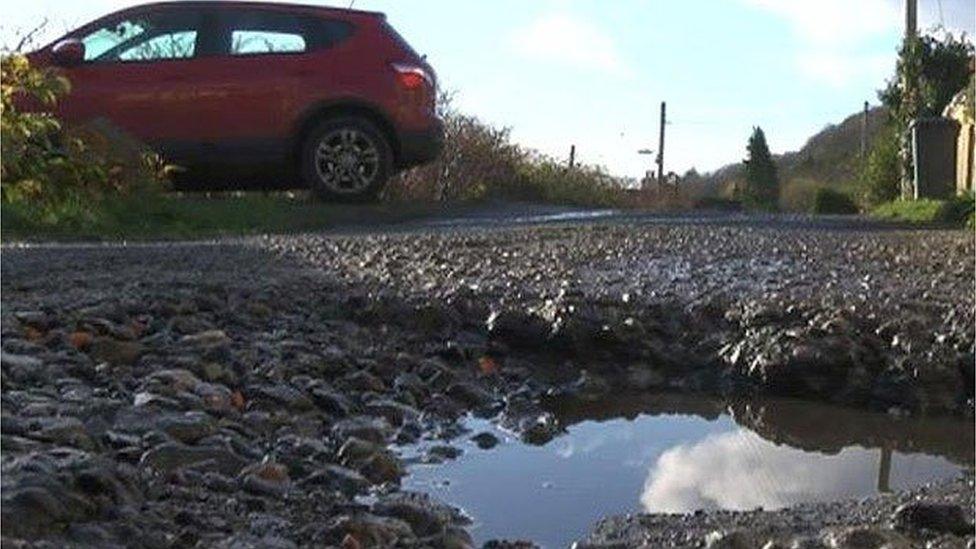Welsh councils urged to repair potholes to save money, says RAC
- Published

Councils should stop doing "panic patch repairs" to potholes on roads and instead focus on keeping roads to high standards, the RAC has said.
Welsh authorities spent more than ¬Θ30m paying compensation in five years after accidents caused by potholes, and filling in potholes after receiving complaints, figures show.
The RAC said sorting the road out before any problems would save money.
The Welsh Local Government Association said councils had "extreme pressures".
The figures from 18 out of 22 Welsh councils who responded to a Freedom of Information request by the Newyddion 9 programme detailed their spending.
Swansea council and Ceredigion council said they had spent more than ¬Θ5m between 2010- 2015 filling in potholes after complaints from the public and on compensation.
One person in Ceredigion was given ¬Θ83,264 after sustaining an injury from falling over a pothole.
Neath Port Talbot, Rhondda Cynon Taf, Gwynedd and Cardiff councils could not provide the relevant information.
'Significant challenge'
The RAC said more funding was needed in order to prevent the continuing decline of roads in Wales.
Ed Evans from the RAC said: "Over the last 10 years we've had twice the number of callouts from people who've had an accident after hitting a pothole.
"Every year the number of people reporting accidents due to potholes has increased.
"Instead of just doing panic patch repairs, councils need a programme of replacing our roads to a high standard and keeping it to a high standard.
"Sorting it out at the beginning is the answer. If you let it (a pothole) go until the end of the year, you'll get one big claim after an accident and they still have to repair it, and the cost is much much higher than if you repair it when the problems first appear."
A WLGA spokesman said: "Performance figures over recent years suggest that a reducing percentage of Wales' road network is actually deemed to be in a poor condition, which is a remarkable achievement by councils when considered against the extreme pressures being placed on local budgets."
He added: "Finding the level of funds required to maintain our roads is a significant challenge in such a climate, especially when overall public spending on roads and transport has reduced by 22% after adjusting for inflation since the onset of UK austerity."
- Published23 March 2016
- Published10 March 2016
- Published29 October 2015
- Published10 December 2014